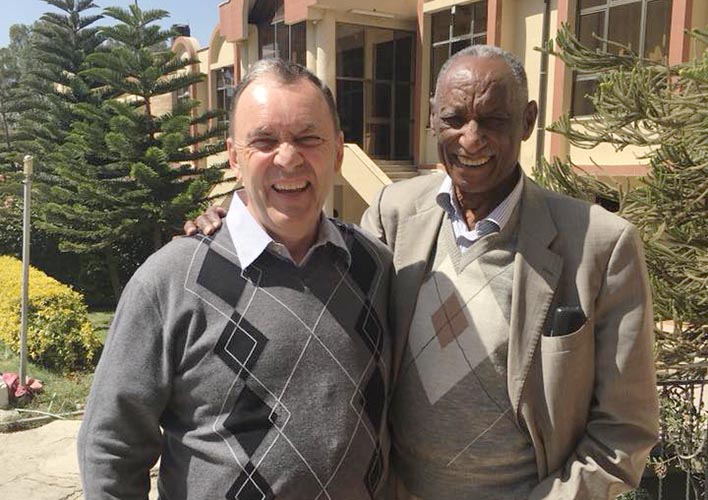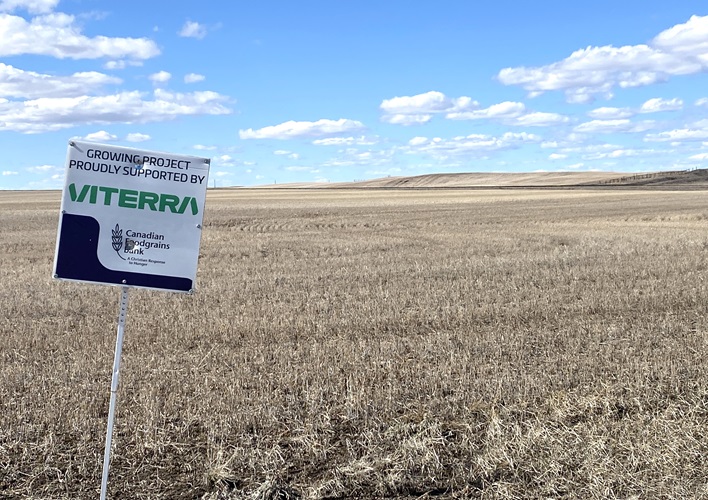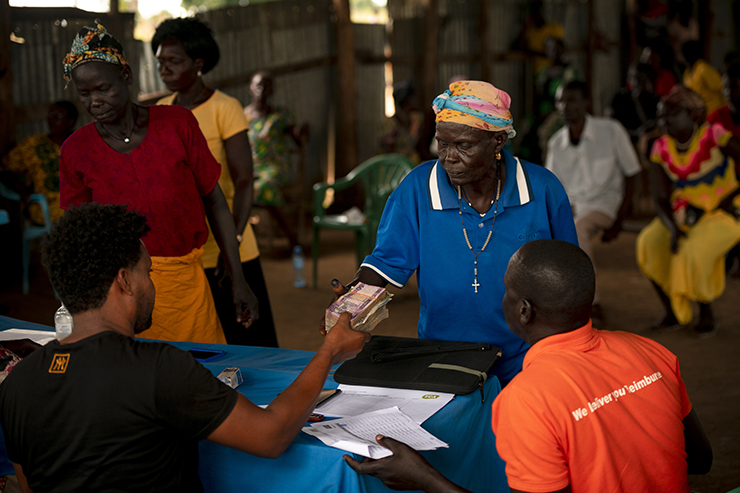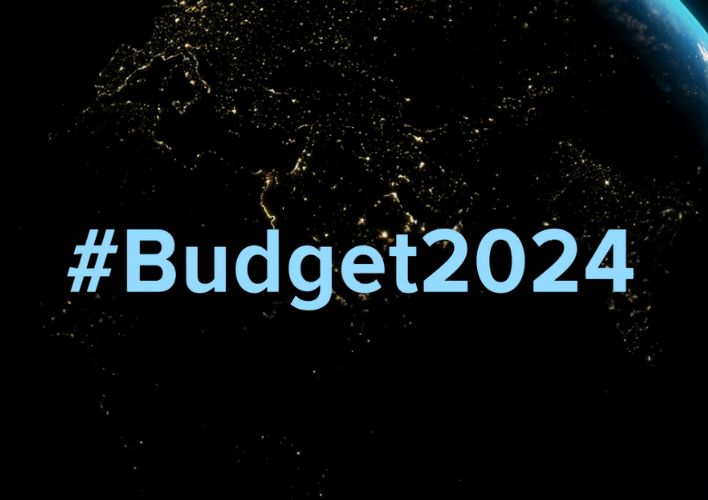Engineer Gebreyes Haile (right) and Leo Seguin (left) met in Ethiopia in the early 90s and quickly formed a close bond. (Photo: Rainbow for the Future)
Under Engineer Gebreyes Haile’s direction, mountains were moved.
That’s how Sam Vander Ende summarizes the impact Engineer Gebreyes had on his native Ethiopia during his lifetime.
Gebreyes, who died on February 13, 2019, brought irrigation systems and water access to remote and arid parts of Ethiopia through his work as a water resource engineer. He spent over 25 years as head of the soil and water conservation programme with the Lutheran World Federation and had a particular commitment to communities in the remote Afar region.
Under Engineer Gebreyes Haile’s direction, mountains were moved.”
“He was a larger-than-life personality who commanded respect,” says Vander Ende, an Ethiopia-based field representative for Canadian Foodgrains Bank. “He undertook challenges with great passion, energy, vision and leadership.”
Gebreyes earned an engineering degree at Addis Ababa University. Before working at the Lutheran World Federation, he worked at Tendaho Agriculture Development Enterprise—a joint project between the Ethiopian government and a private British firm—as the organization’s first resident Ethiopian engineer. In 1968, he was nominated for an honourary doctoral degree from the University of Southampton in England, from where he had already earned a Master’s degree in agricultural engineering.
After the Lutheran World Federation, Gebreyes went on to establish Support for Sustainable Development (SSD) in 2003, supported by the Foodgrains Bank through its member Canadian Lutheran World Relief and with financial support from the Westlock growing project. Between Lutheran World Federation and SSD, he designed and built over 150 irrigation systems across Ethiopia and Eritrea, including in the Afar, a region of Ethiopia that held a special place in his heart.
The Afar people are traditionally pastoralists who derive their livelihoods from their livestock. They move with their animals, bringing them to green pasture and watering holes.
In recent years, a changing climate combined with pressure on the land from local communities encroaching on Afar traditional land has made their traditional lifestyle difficult to maintain. Recurring drought led to families frequently needing emergency food aid to help them get by.
With increasing frequency of drought and looming challenges of climate change, alternative forms of livelihood were and are needed. Under Gebreyes’ leadership, SSD offered Afar pastoralists an alternative livelihood. Instead of ‘pure pastoralism,’ the Afar could also produce irrigated crops and forage. This enabled elderly people and mothers with young children to stay in one place, and children could attend school—while the young men took the larger herds to search for grazing.
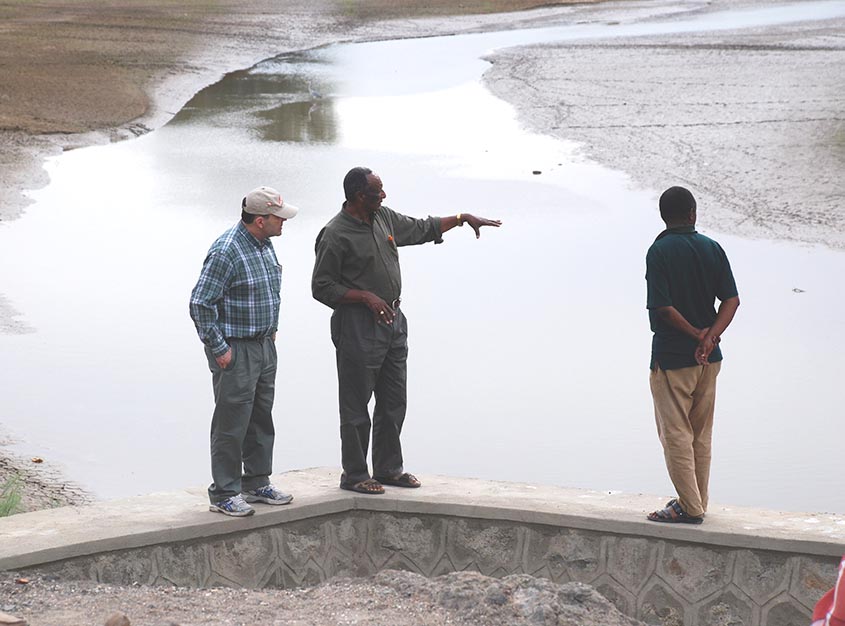
Engineer Gebreyes Haile explaining features of an intake structure as part of SSD’s project. (Photo: Submitted)
For Karin Achtelstetter, executive director at Canadian Lutheran World Relief, the impact Gebreyes’ work had on girls and women will form a key part of his legacy.
“The spin-off effects of providing pastoralist families with options in how they earn a livelihood means young girls who otherwise would not have gotten an education are now enrolled in school, for example. Both directly and indirectly, Gebreyes affected the lives of many people in a wonderful way.”
Vander Ende echoes her comments.
“He was a shining light of a good development worker,” he says.
Most of the irrigation systems Haile built are still running, managed by committees made up of local residents, and the work with SSD continues.
Much of SSD’s work in the Afar is thanks to a special bond Gebreyes shared with Leo Seguin, the recently deceased growing project leader and organizer from Westlock, Alberta.
Seguin met Gebreyes in the early 90s. The growing project leader traveled to Ethiopia with the Foodgrains Bank to see the impact Westlock fundraising donations were making on the ground.
The two men quickly formed a close bond. Over the years, the community of Westlock, under Seguin’s leadership, would continue to support Gebreyes’ work in the Afar, eventually leading to the creation of SSD.
His hard work and dedication transformed the lives of thousands of his fellow Ethiopians, particularly woman and girls.”
“I am constantly amazed at the longevity and success of his accomplishments,” he says. “His hard work and dedication transformed the lives of thousands of his fellow Ethiopians, particularly woman and girls.”
“His memory will live on in the lives of the young children who will be educated because of him, and in each irrigation scheme that brings fresh water even in the driest of years to water crops that will nourish families.”
The name Gebreyes means “servant of God” in the Ethiopian language of Amharic—a fitting name for a man who dedicated his life to serving the underprivileged.
–Amanda Thorsteinsson, Communications Coordinator
